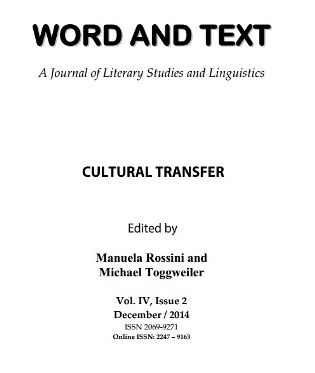The Metaphor of Foreign Languages: ‘Geopolinguistics’ in Romanian Culture
The Metaphor of Foreign Languages: ‘Geopolinguistics’ in Romanian Culture
Author(s): Ilinca-Magdalena StroeSubject(s): Language and Literature Studies
Published by: Universitatea Petrol-Gaze din Ploieşti
Keywords: culture formation; Eastern borderlands; multilingualism; Romanian identity; geopolitics
Summary/Abstract: Countries are typically defined as nation states permeated by a specific culture based on a language which acts as a carrier/guarantor of national identity. ‘A language is a culture’ seems the right equation to sum up the status of mother tongues and/or official languages. The equation, however, does not seem to extend to foreign languages (second- or third-languages learned by non-natives), which are generally regarded as ‘less culture’ than mother tongues, as merely ‘technical’ or professional tools, rather than shapers of (further) cultural identities within a nation. This article sets out to argue that, in the case of Romania, non-native language acquisition has been a cultural transfer in itself at least since the 17th century. The core hypothesis is that in Romania prevailing foreign language options have enabled cultural empowerment (e.g. mentality ‘updates’), implied geopolitical orientations (e.g. military alliances) and allowed for therapeutic solutions (to national psyche downsides).
Journal: Word and Text, A Journal of Literary Studies and Linguistics
- Issue Year: IV/2014
- Issue No: 02
- Page Range: 39-49
- Page Count: 11
- Language: English

